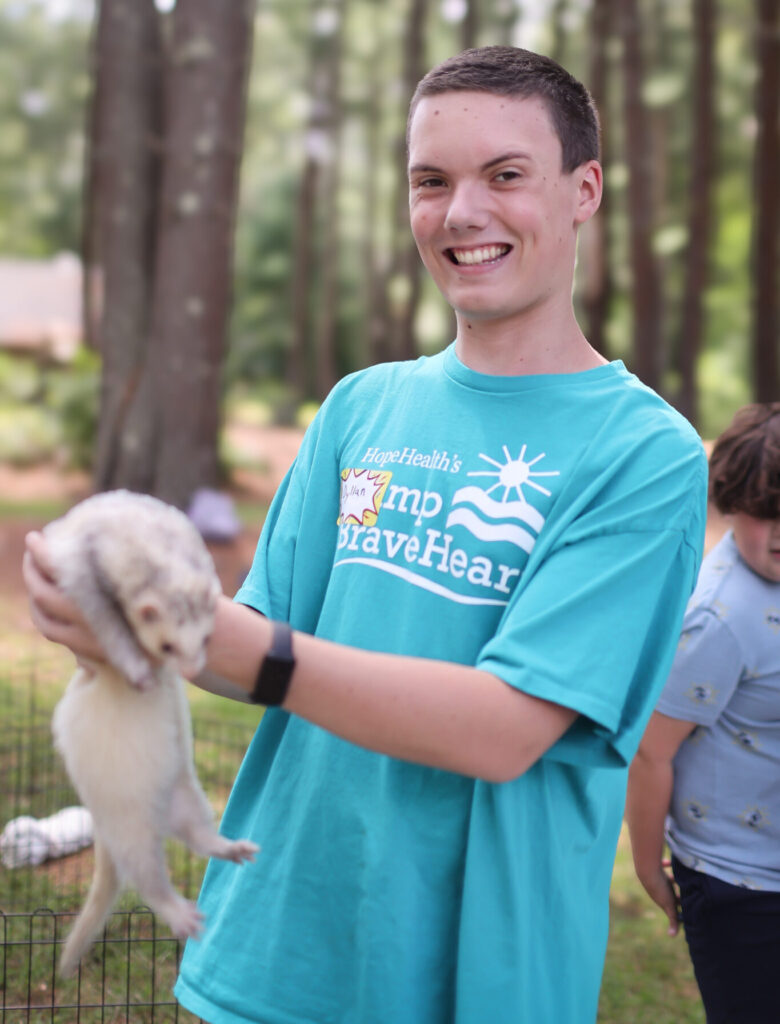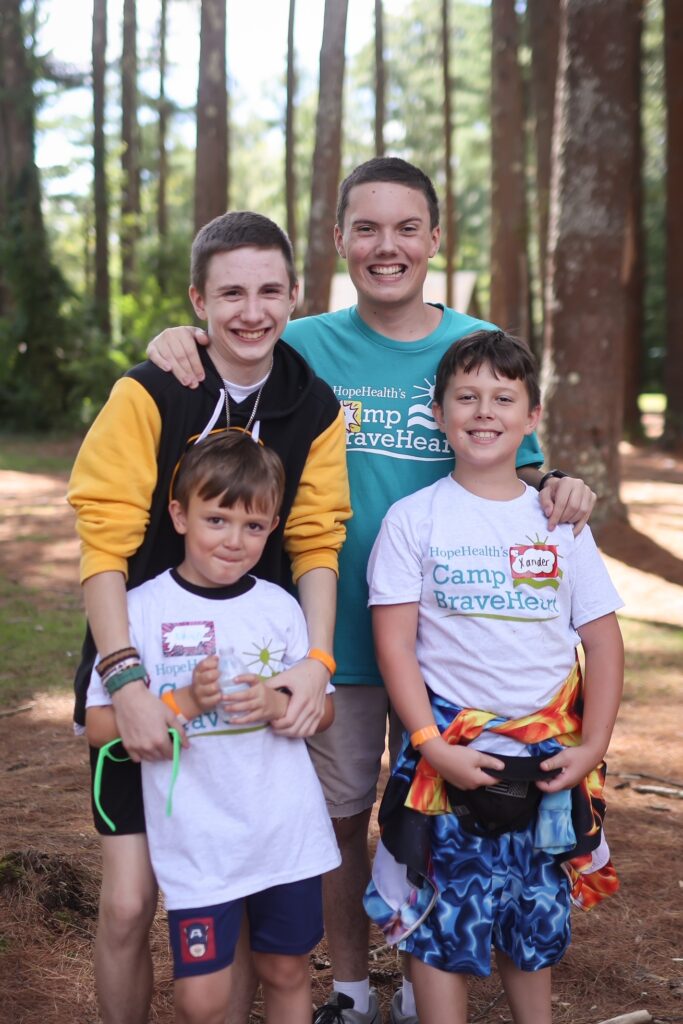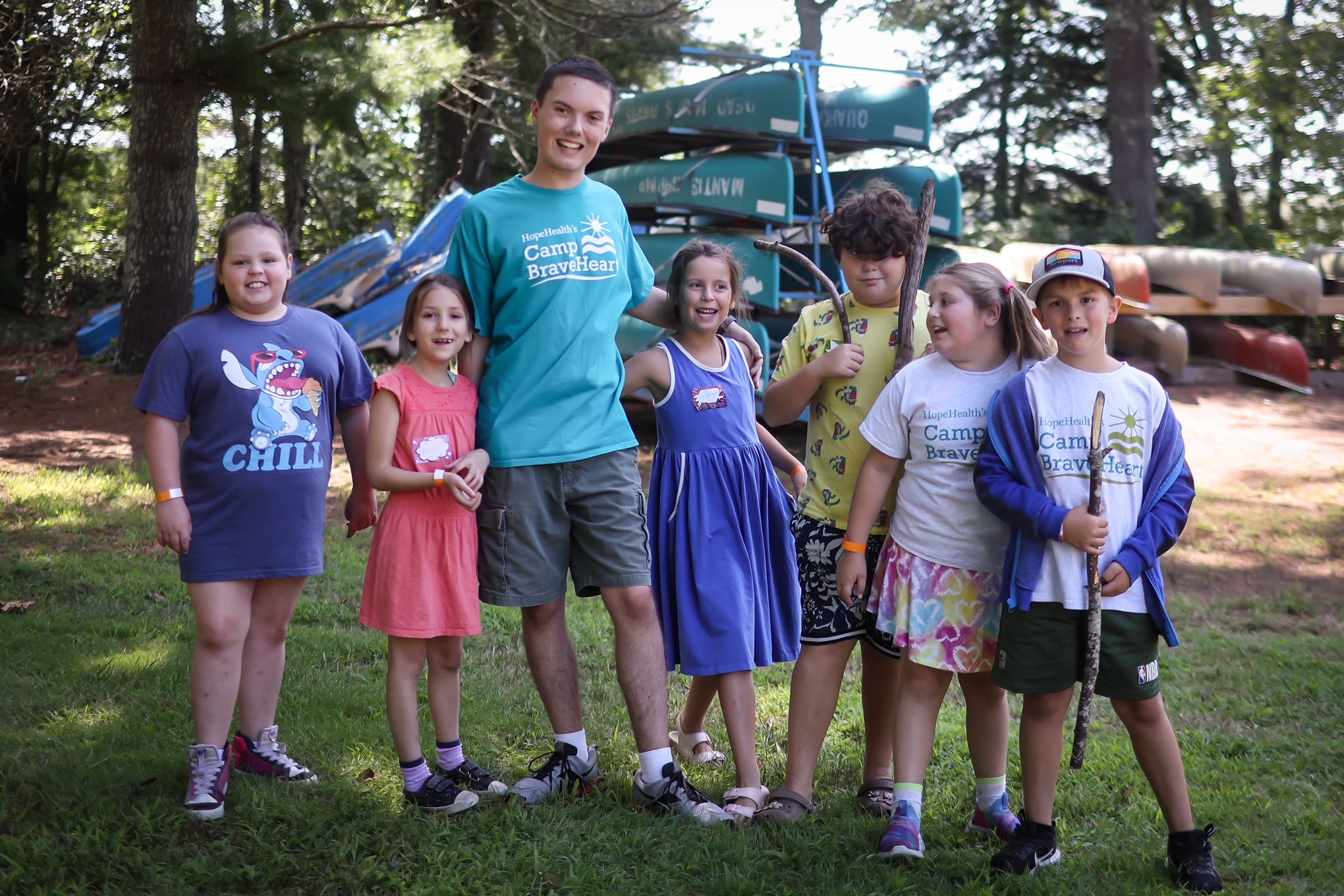In every direction, the air is filled with bubbles. Dyllan DuClau touches his necklace, which holds a bit of his father’s ashes, then blows once more into the plastic wand, sending more bubbles into the sky. They carry a message to his dad, written on dissolvable paper and stirred into the soapy solution. “I miss you. I love you. I wish you were here.” Around him, other kids and teens watch their own messages drift off.
This is one of Dyllan’s favorite traditions at Camp BraveHeart, a summer day camp for youth ages 4 to 17 who have lost a loved one. He’s been coming here every summer since he was 14 years old, the year his dad died of cancer.
Now age 19, he is back for his second time in the role of volunteer camp counselor. He still wears the necklace with his father’s ashes. It is always with him, just like his dad. Over the years, Camp BraveHeart has helped him understand this — and now he’s helping other kids understand it too.
“I like to help people,” Dyllan says. “I want to be able to help other kids who have lost someone very dear.”

“I understand what they’re going through”
Kids and teens grieve differently than adults. They need lots of breaks. They need to laugh and goof off. They need to process things in their own way. And like anyone of any age, certain activities connect with them more than others. For some kids, it’s a theater workshop. For some, it’s making friendship bracelets. For others, it’s running around on a basketball court or soccer field.
Camp BraveHeart is designed with exactly this in mind. Over three days, it offers a mix of typical summer camp fun with grief- and remembrance-focused activities like the bubble ceremony. All of this is overseen by HopeHealth’s professional grief counselors — who specialize in support for kids — and made possible by trained volunteers like Dyllan.
In his role as a camp counselor, Dyllan assists the kids with crafts, works up a sweat in a dodgeball-esque game called ga-ga ball, and goes swimming.
Just as importantly, he sits beside the campers in “group time,” quiet breaks in the day when they divide into age-specific support groups to talk about their loss, or just listen in solidarity. He remembers what it was like in the first months and years after his dad’s death. He still feels that ache. But he also knows that, just like him, these kids can find a way to heal. Group time is a big part of that.
“I understand what they’re going through,” Dyllan says. “Sometimes it’s a little hard to talk to a family member about these things, but it’s easier to talk to other people — especially when you know they’ll understand.”
This healing power isn’t just about talking. Much of the time, the Camp BraveHeart magic is about simply being together, and finding a new way to live without a beloved family member. Campers-turned-counselors like Dyllan play a special role.
“Many campers are still in the acute stages of grief, and may not think they’re ever going to get to a point where they feel good again,” says Sarah DeCosta, HopeHealth’s manager of grief support services. “It’s so important for them to see someone like Dyllan, who was also there not that long ago. They can see that now he’s in a better place with his grief, and he’s even using his experience to help people. They can see what it looks like on the other side.”
> Related: “She healed my heart”: In grief support group, a friendship blossoms

A messenger of hope
In Dyllan’s family, dragonflies are a powerful sign: They represent people who’ve passed away, sending a surge of love. At college orientation, when a dragonfly settled on the banner of his school logo and stayed for hours, Dyllan knew it was his dad looking out for him.
Sometimes, he’ll share this story with the kids at Camp BraveHeart, in case it clicks with some of them too.
“I want them to understand that what we believe and do to honor our loved one can be good for us,” Dyllan says. “I tell them how my family believes that dragonflies are messengers from our loved ones.”
To these kids, Dyllan himself is now a messenger — of hope. He’s someone they trust and look up to. He’s someone they can talk to. And through his positive, caring presence, he’s a role model.
“Dyllan had such a significant loss when he lost his dad. Today, he’s able to have fun and be silly with the kids, and still be honest about his grief,” says Sarah. “I think that’s really, really helpful for our campers to see.”
“I’m just trying to make sure that kids understand that what they’re feeling is alright,” Dyllan says, “and they’re not alone.”


